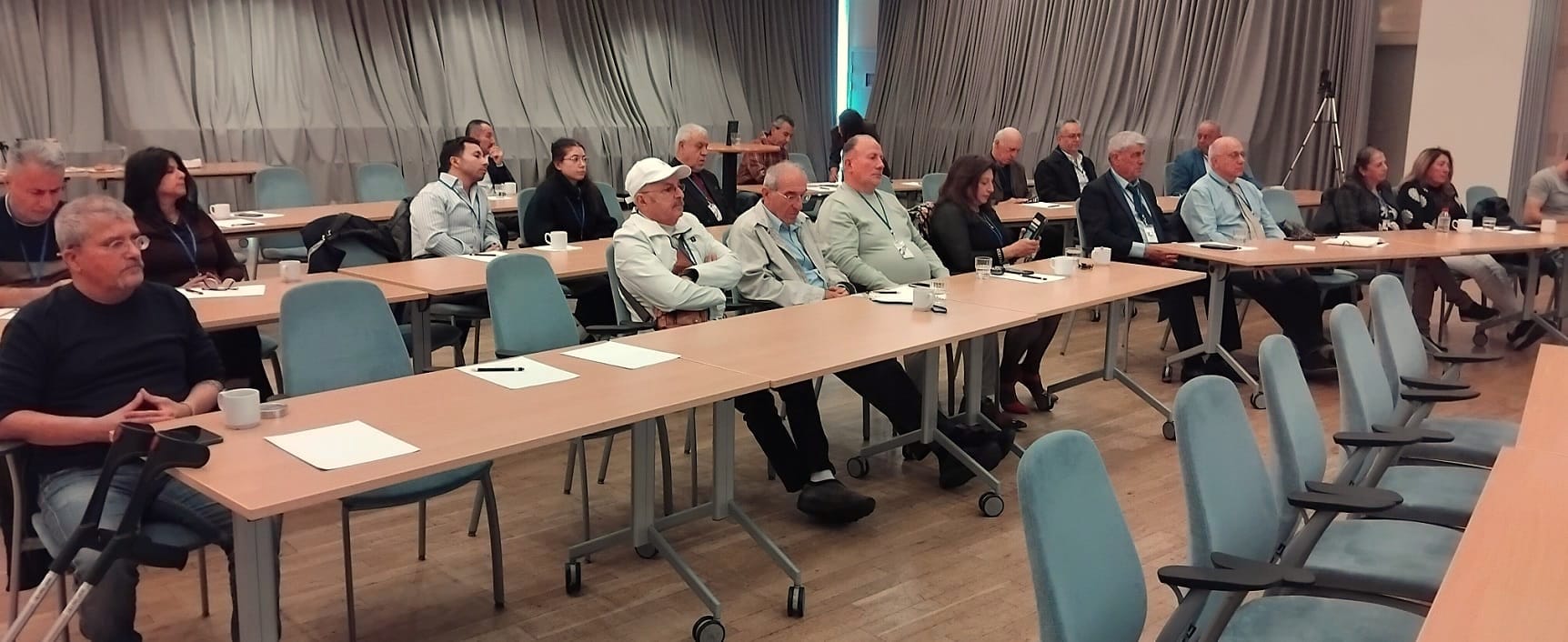A group of Assyrian activists from around the world held a three-day founding conference in the Swedish city of Gothenburg from 19–21 September for what they describe as an Assyrian parliament. The hybrid event included both physical and digital participation.
The project, which has been in development for several years, has been plagued by divisions, delays, and challenges, according to observers.
According to the bylaws published on the official website, members of the parliament–limited to 33 representatives–are to be elected through general elections held worldwide, both online and in person. To be eligible, one must be a representative of a duly registered Assyrian organization or an "independent Assyrian intellectual and recognized community leader," the adopted bylaws state.
The list of elected representatives shows that only 26 individuals were elected during the Gothenburg conference, with no explanation given as to why the body did not fill the 33 seats mandated by its bylaws. It also remains unclear what the Assyrian parliament representatives will do now that they have been elected.

Lack of enthusiasm and buy-in
For a project with the bold claim of representing the entire Assyrian nation, the activists behind the initiative have so far seen little support or participation. Assyrians in general appear only mildly interested, as very few took part in the first online elections, where just 874 votes were cast worldwide despite the availability of global online voting. Moreover, few Assyrian organizations have commented on the initiative, a sign interpreted as lack of buy-in from established actors. The activists behind the initiative, however, seem undeterred by the low turnout, believing they have taken a historic first step whose fruits will mature with time.
The broader context
The quest among Assyrians to establish a representative body is not new. The Assyrian Universal Alliance, set up in 1968, was originally intended to serve as an umbrella organization but evolved over the years in the opposite direction, eventually becoming just another political group among others.
The idea of a body that would represent the will of the entire Assyrian nation has gained renewed momentum in recent years with the rise of social media and a more interconnected world, enabling activists to connect more effectively and work toward realizing the concept.
While the basic idea of creating a representative body is sound, observers note that the project is rooted in a mindset that assumes the Assyrian nation must be rescued by external forces. The thought is that Assyrians have not been able to advance their cause by means of appeals to the international community because they have lacked proper representation. This belief is expressed in the parliament’s bylaws, which state: "The Assyrian Parliament is established to justly represent the Assyrian people as an indigenous nation dispersed throughout the world, to defend their rights, preserve their language, culture, and heritage, and advocate for their political standing on both international and domestic levels."
Guided by this perspective, the activists behind the initiative believe that creating an entity under the title of "parliament" will help secure external backing. The problem with this thinking, observers argue, is that its basic assumptions are wrong. External backing or acknowledgment does not materialize solely because of a unified voice. Instead, it is something that a political movement needs to earn by demonstrating an ability to achieve tangible goals and establish facts on the ground. Some have compared the initiative to a man in need who, instead of putting in the hard work necessary to lift himself out of poverty, doubles down on begging in the streets, thinking that a new outfit will secure his salvation at the hands of a passerby. If having a representative body would have helped the Assyrian nation, the AUA would have succeeded a long time ago. As one commenter on social media noted: "No one is against the idea, but if you are establishing a parliament to go around and ask for help, then you are making the same mistake as previous generations. However, if you are doing it to help the nation get organized and work for itself, then we are all with you."










